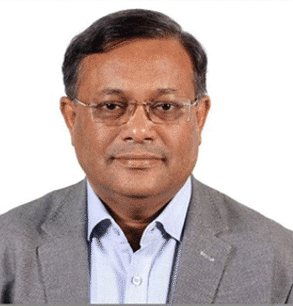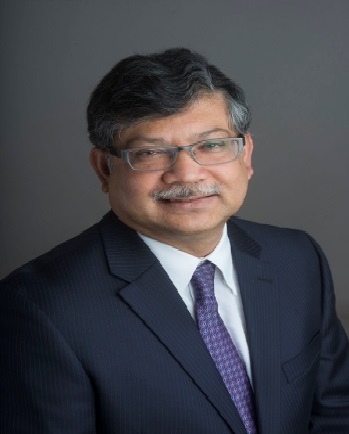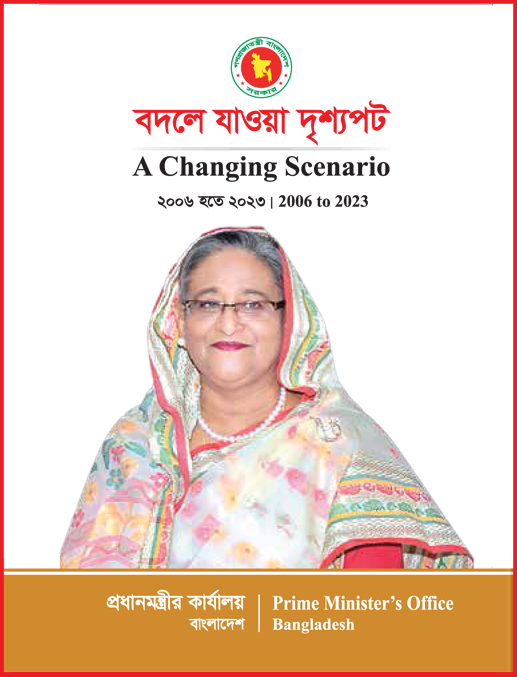Speech by the Chief Guest, H.E. Md. Shahriar Alam, MP Honourable State Minister, Ministry of Foreign Affairs

Bangabandhu and Bangladesh: Leadership and Foreign Policy
Ambassador M Fazlul Karim, Chairman, BIISS
Major General Md Emdad Ul Bari, ndc, psc, te, Director General, BIISS
Distinguished Speakers
Dear Guests,
Ladies and Gentlemen
AssalamuAlaikum and Good Afternoon!
At the outset, I would like to pay my solemn reverence to the memory of our Father of the Nation, Bangabandhu Sheikh Mujibur Rahman. On the eve of our 49th victory day, I extend my sincere homage to the memoryof 3 million martyrs who made their supreme sacrifice and 2 lac women who lost their innocence during our War of Liberation in 1971. Let me appreciate the effort of BIISS to organise such an event to celebrate the birth centenary of our Founding Father.
Ladies and gentlemen,
On this auspicious occasion, it will be prudent to revisit the foundations of our foreign policy that were laid down by the Father of the Nation during his lifetime and in retrospect, to reflect on whether we were successful in pursuing his path. The guiding principle of our foreign policy was derived from the philosophical root that was enshrined in our constitution by Bangabandhu; which is “Friendship to all and malice towards none”. But where did it stem from?We all are well acquainted with the famous delineation from Bismarck who defined foreign policy as the extension of domestic policy. Therefore, not only international structure, but domestic realities guided the great leader of this newly liberated nation to form the foreign policy based on peace, justice and nonalignment. The turbulent time of the Great Wars followed by the anti-colonial waves across the globe, entrenched the longing for self-determination, peace and democracy into Bangabandhu’s political philosophy. He, being a true son of the soil, did not take much to ascertain that as a nation, our identity and aspiration not only derived from our colonial past, rather, it also resided within the realm of Bengali nationalism.
Distinguished guests,
Bangabandhu’s resolute commitment for safeguarding global peace based on the UN charter was codified magnificently in the constitution of Bangladesh, which goes like, “The State shall base its international relations on the principles of respect for national sovereignty and equality, non-interference in the internal affairs of other countries, peaceful settlement of international disputes, and respect for international law and the principles enunciated in the United Nations Charter..”. The aspirations behind this firm commitment was eloquently put into words by our Father of the Nation Bangabandhu Sheikh Mujibur Rahman in his maiden address to the UN General Assembly in September, 1974: “The noble ideals enshrined in the Charter of the United Nations are the very ideals for which millions of our people have made the supreme sacrifice. I know that the soul of our martyrs join us in pledging that the Bangalee nation fully commits itself to the building of a world order in which the aspiration of all men [and women] for peace and justice will be realized.” Like a true statesman, Bangabandhu beautifully juxtaposed, Bengalis’ nationalist aspiration for freedom with the global yearning for peace and justice in a world that was intensely polarised by the Cold War.
Based on this philosophical foundation, Bangladesh’s foreign policy objectives are further elaborated in Article 25(1) of Bangladesh Constitution, enunciating that the State shall maintain its foreign relations based on the principles of peaceful settlement of international disputes, respect for international law and the UN Charter, and strive for social and economic emancipation of peoples.
Dear audience,
Bangabandhu was very much, like all great leaders, a creation of his time and space but through his work left undeniable mark on the history that transcends both time and national boundaries. His political and philosophical worldviews were shaped by his deep rooted bond with his own people, era, culture, socio-political struggle, mentors and the larger society.
Therefore, Bangabandhu was very much aware of the political reality that Bangladesh was born into. Right after the independence, this new nation had to navigate through treacherous waters and numerous hidden shoals created by not only a polarised subcontinent but also anideologically divided world.The rift between the US and the USSR was so extreme that the birth of Bangladesh put the two superpowers almost on a collision course in the Bay of Bengal during the final month of the war. Considering the Cold War situation,it was not surprising that another newly independent nation, born out of anti-colonial wave, was caught between the superpower tussle for supremacy. Thus, the main challenge for Bangabandhu was to reconstruct a war ravaged country. He took the helm in such a time when the economy wascompletely shattered, infrastructures and communications werecompletely destroyed due to the colonial rule of Pakistan and the nine months long War of Liberation. Under this demanding condition, he had to secure international recognition, assistance for reconstruction of the country and put Bangladesh on the world map as a self-reliant nation. In order to achieve these Herculean tasks, Bangabandhu realisedthe necessity of reaching out equally to both the superpowersand build practicable bridges with them. His commitment to non-alignment stemmed from the deep-rooted belief that it was not in Bangladesh's interest to be caught in between the rival superpowers.
Ladies and gentlemen,
On the birth centenary of our great leader, Bangabandhu Sheikh Mujibur Rahman, Bangladesh is very much on the right track to be the “Sonar Bangla” he always dreamt, spoke of and worked for. In this great journey as a nation, we have Bangabandhu’s daughter, Honourable Prime Minister Sheikh Hasina as our leader. Under her bold, visionary and charismatic leadership, the country continues to uphold, Bangabandhu’s brand of foreign policy which preaches balanced relations based on mutual trust and respect with great powers and good neighbourly relations with all neghbouring countries in the immediate neighbourhood and beyond.
Bangladesh enjoys best of its relations with its largest neighbour India. It is the policy of friendly and good neighbourly relations with neighbours that guided us through difficult time with our neighbour Myanmar. You are all aware that the Rohingya influx from Myanmar into Bangladeshhas created a humanitarian crisis and soured our relations in recent times. However, Bangladesh remained steadfast in Bangabandhu’s path of peace and we continued our engagements with Myanmar to resolve this crisis in peaceful manner. We hope to see the problem to be resolved permanently with sustainable return of the Rohingyas to Myanmar as expressed by our Honourable Prime minister at the UN General assembly.
Banagbandhu clearly understood that in a realist world that was marred by conflicts, war, and rivalry; it would be important for a country like Bangladesh not only to keep equidistance but uphold multilateralism particularly through the UN system. Hence, this remained Bangladesh’s diplomatic strength where Bangladesh engages as an active voice in various normative and policymaking initiatives. Bangladesh has maintained its success in promoting international peace and security through peacekeeping and peacebuilding activities, under the pragmatic and dynamic leadership of Honorable Prime Minister Sheikh Hasina.
Ladies and gentlemen,
One key foreign policy priority of Prime Minister Sheikh Hasina, the able daughter of Bangabandhu Sheikh Mijubur Rahman, has been to situate Bangladesh at International setting as a responsible and responsive state. This has aptly been manifested in her Vision 2021, Vision 2041 and the forward looking‘Digital Bangladesh’ campaign that dreams to transform Bangladesh into a knowledge-based society. In the coming days, Bangladesh will continue to follow Bangabandhu’s footsteps in its peace-centric and sustainable development focused approach in the international forum. Bangabandhu believed in the collective power of Bengali nation and the humanity. Amidst this global pandemic of COVID-19, whereas many of the nations are struggling to keep up their economic progression, Bangladesh is performing admirably. It is my firm believe that the dreams and aspirations those were sown by our Father of the Nation, Bangabandhu Sheikh Mujibur Rahman, to turn this country into “Sonar Bangla”, will be achieved through the indomitable resolve and hard work by the nation under the leadership of our great leader Hounourable Prime Minister Sheikh Hasina.
Joi Bangla, Joi Banghabandhu
May Bangladesh Live Forever.













